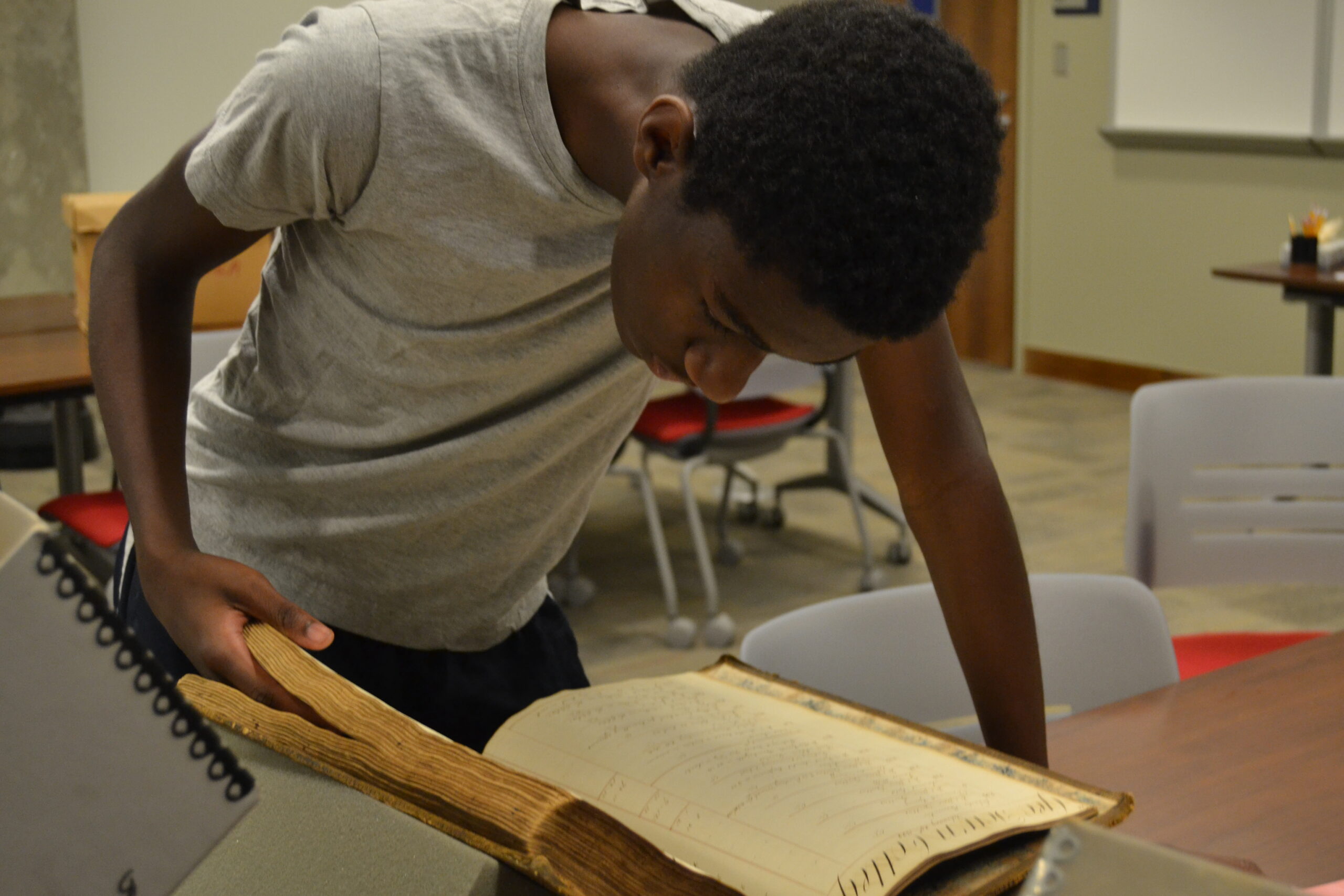
Searching for Truth in the Garden: Gonzaga College High School’s History with Slavery
Editor’s Note: While the Ford’s Theatre campus is closed in response to the COVID-19 pandemic, panels from “Searching for Truth in the Garden: Gonzaga’s History with Slavery” can be viewed on the Gonzaga website here.
The exhibit Searching for Truth in the Garden: Gonzaga’s History with Slavery began with a question. During a November 2016 presentation at our school led by Adam Rothman, Georgetown history professor and principal curator of the Georgetown Slavery Archive, one of my students asked him if he knew of any historical connections between slavery and Gonzaga College High School. Professor Rothman said that he didn’t know the answer. He then challenged Gonzaga students to search for the answer. He invited students to visit the Booth Family Center for Special Collections at Georgetown University and search the archival records themselves.
In the summer of 2017, a small group of dedicated students began the research on the Georgetown campus. After pouring through hundreds of pages of 19th-century accounting books and ledgers, these extraordinary students were able to answer the question. Yes, Gonzaga College High School had direct ties to slavery.
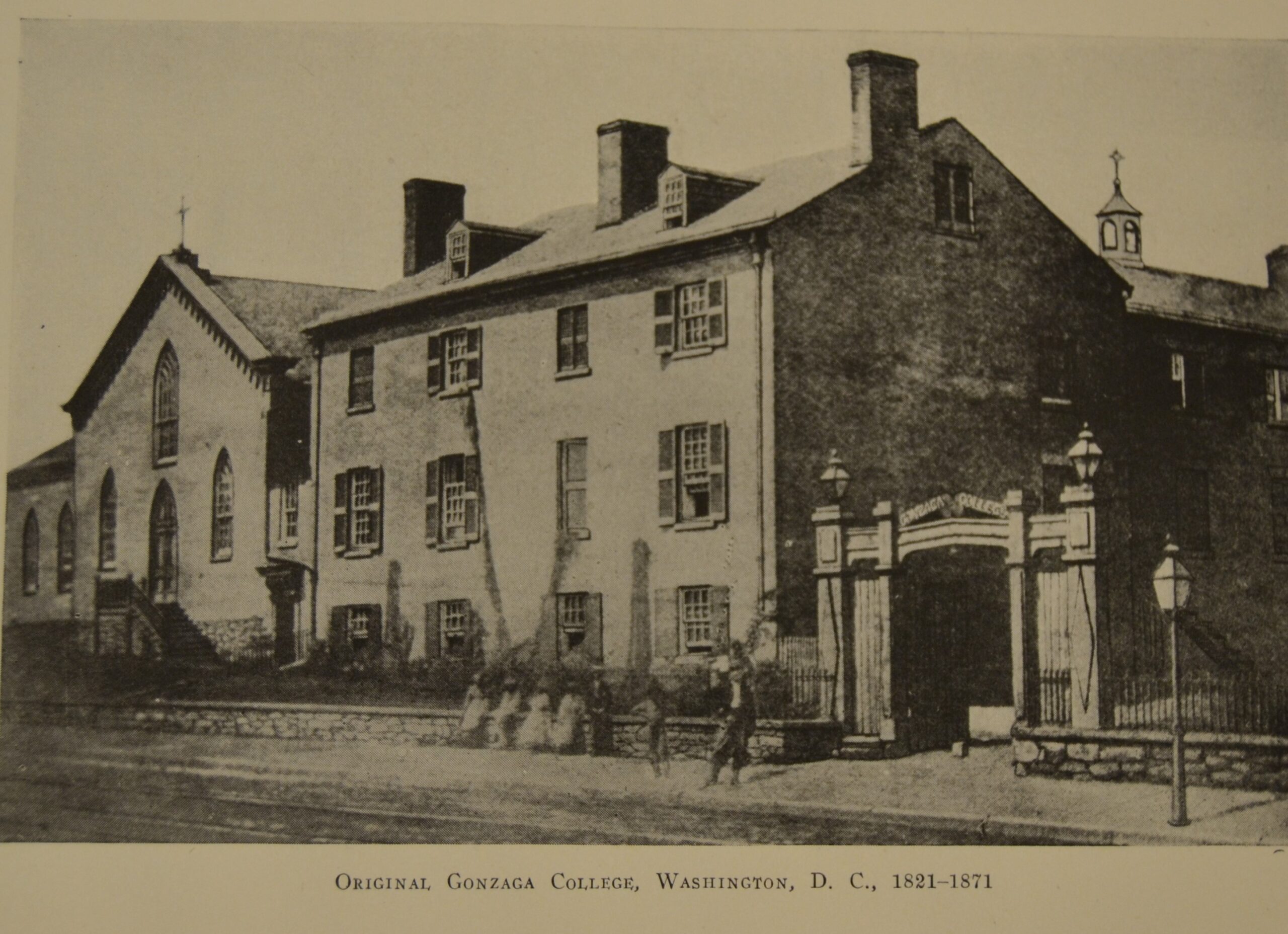
Financial Document Discoveries
The first evidence the students identified were financial documents showing that the profits from Jesuit-run slave plantations in the region went directly into the building and construction of the Washington Seminary which is Gonzaga College High School’s founding institution (the seminary changed its name to Gonzaga College in 1871). One document showed income received from Jesuit plantations and an expenditure reading, “Payment of debt on purchase of ground on which Washington Seminary is built.” The financial connection was clear.
The students also located documents that showed that food from the plantations that enslaved people came directly to The Washington Seminary. One document lists foodstuffs including bacon, chickens, beef, potatoes and turnips being delivered to the school.

Enslaved at the School
The most difficult part of the research involved discovering that five enslaved persons worked at the school. Locating the names of Isaiah, Gabriel, Mary, Sophy and Ned moved the research from an academic exercise. Great care and countless hours were spent in trying to tell the stories of these five enslaved persons. A fuller story of one of the enslaved persons, Gabriel, can now be told.
Gabriel was a young boy about 13 when he is first located at the Washington Seminary in April of 1822. A brief line in an accounting book simply says, “To Gabriel, for weeding in the garden in time of recreation.” At the end of the line is a payment for 6 cents. Working with historians and archivists from around the country to find other information, the students are able to tell Gabriel’s tragic story. His story is perhaps the most powerful part of the exhibit.
Exhibit on Campus
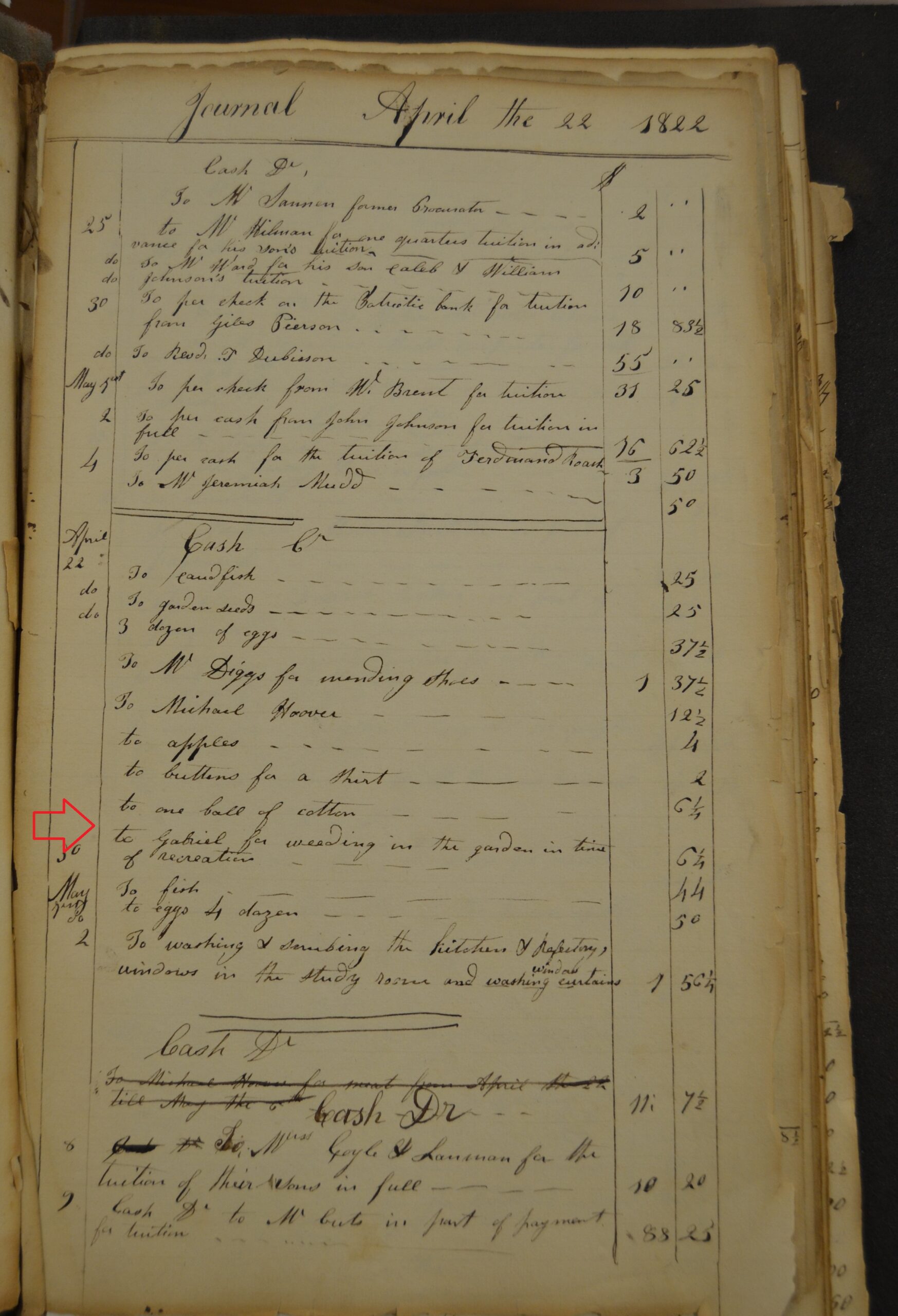
The process of recognizing these truths and facing them has been challenging for our community. We’ve addressed these feelings in several ways. The exhibit Searching for Truth in the Garden: Gonzaga’s History with Slavery opened at Gonzaga College High School in April 2019. It was displayed where every student had the opportunity to learn the truth about their beloved school’s founding. Small group discussions facilitated by teachers helped students express their feelings about the history. Additionally, one of the descendants of the enslaved persons sold by Georgetown University in 1838 came and spoke to our students. A book of student and faculty poetry, titled Garden: Gonzaga Poets Respond to the Slavery Research Project, also was published during the 2017-2018 school year in response to the students’ research. The book includes many deeply moving poems, several of which are included in the exhibit as it moves to Ford’s Theatre this spring.
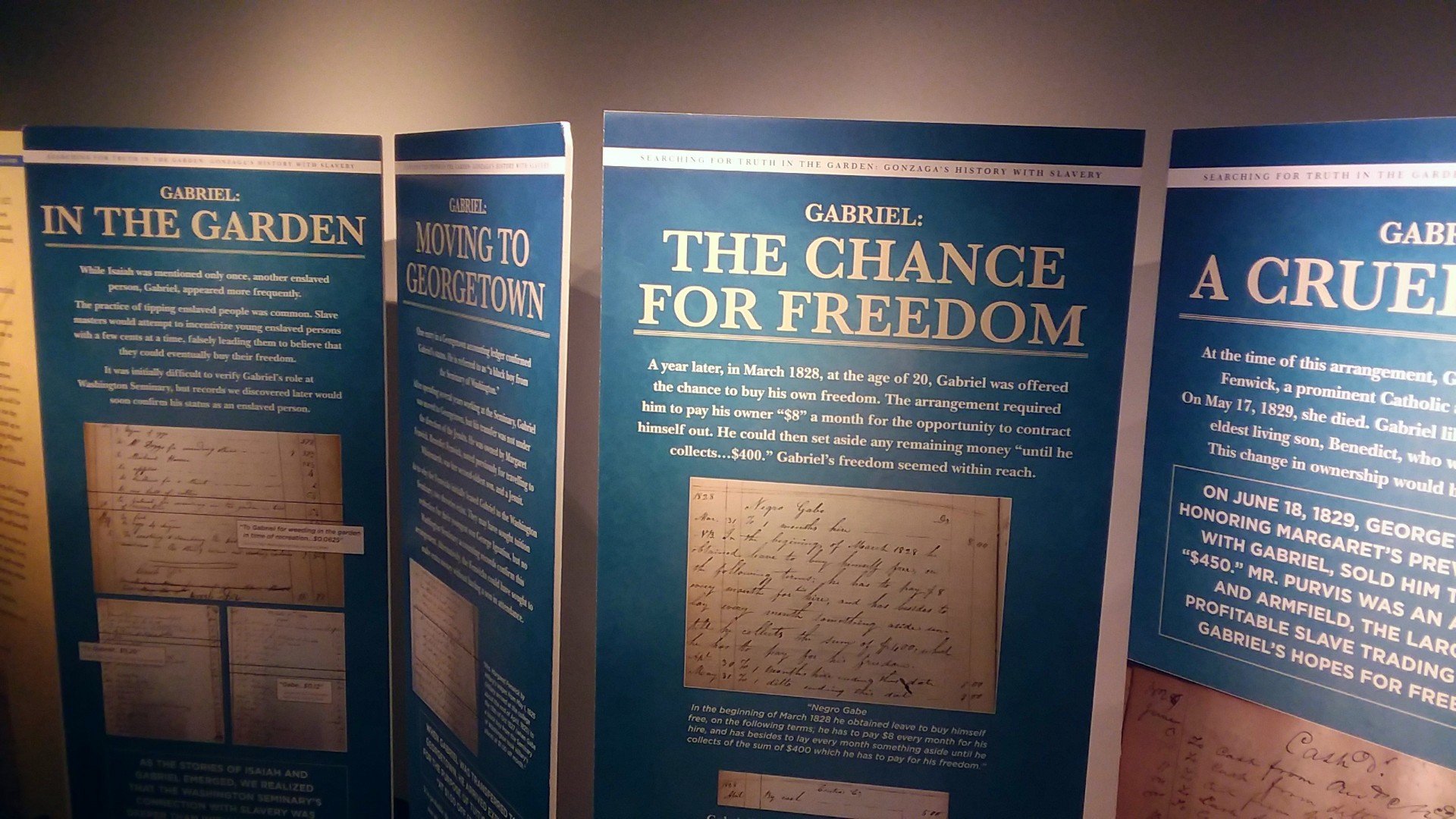
On Display at Ford’s Theatre
Searching for Truth in the Garden: Gonzaga College High School’s History with Slavery is now on display on the second floor of the Ford’s Theatre Center for Education and Leadership (514 Tenth Street NW) through August 2020. The Ford’s Theatre campus is a fitting place for the exhibit, as it is near Washington Seminary’s initial home on F Street NW during the Civil War period.
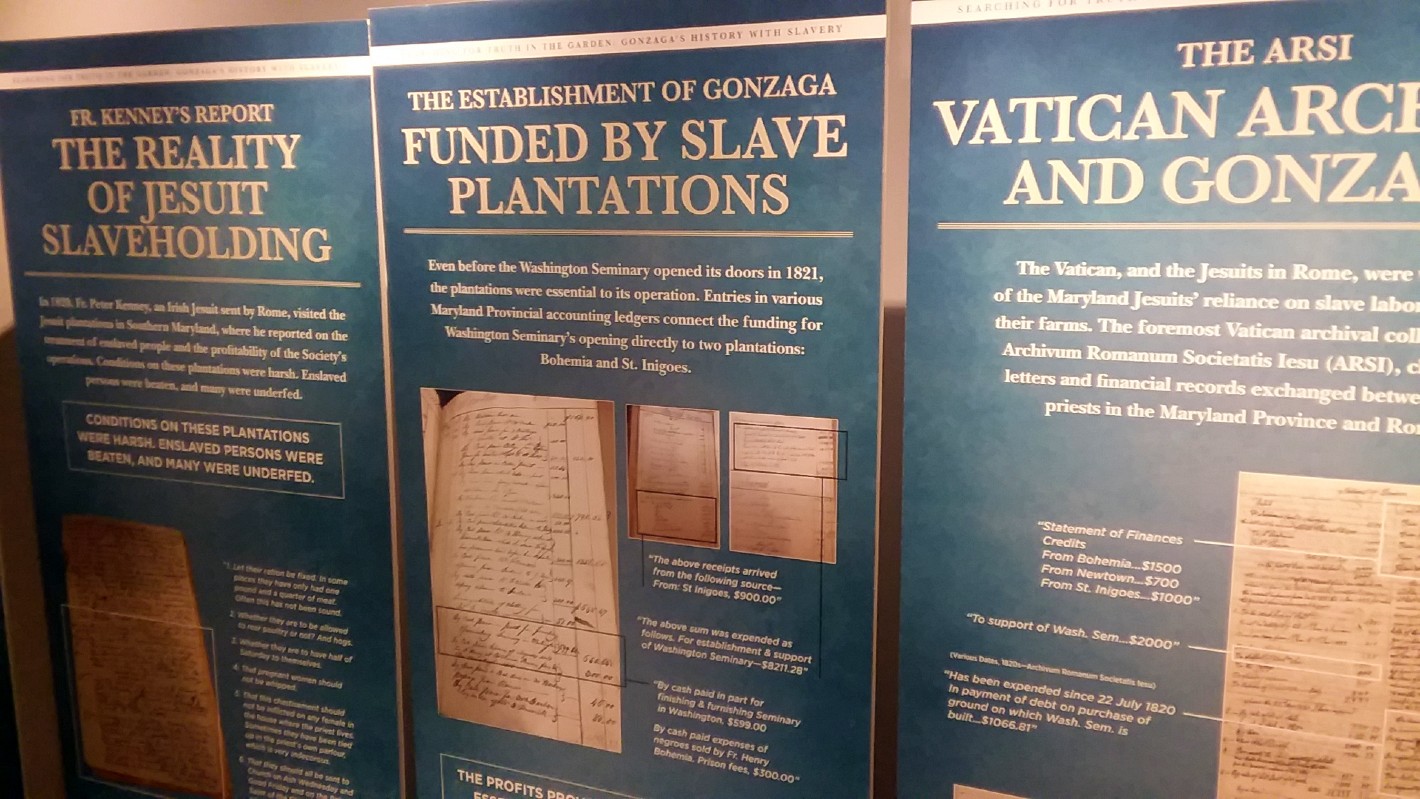
The exhibit is a testimony to the power of students and what they can accomplish when given the opportunity. What is truly amazing is that this project began with a question. We hope you will find the exhibit thought provoking and informative.
Tickets to Searching for Truth in the Garden: Gonzaga College High School’s History with Slavery may be reserved in person at the Ford’s Theatre Box Office or online at www.fords.org. Hours are 9:00 a.m.-6:00 p.m. daily. Admission is included with a daytime visit ticket to Ford’s Theatre. Groups of 10 or more may reserve tickets by calling (202) 638-2367.
For more information on the Slavery Research Project, click here: https://www.gonzaga.org/about/history/slavery-research-project.
Ed Donnellan is a history teacher at Gonzaga College High School. He graduated from the University of Massachusetts and lives in Baltimore, Maryland.

